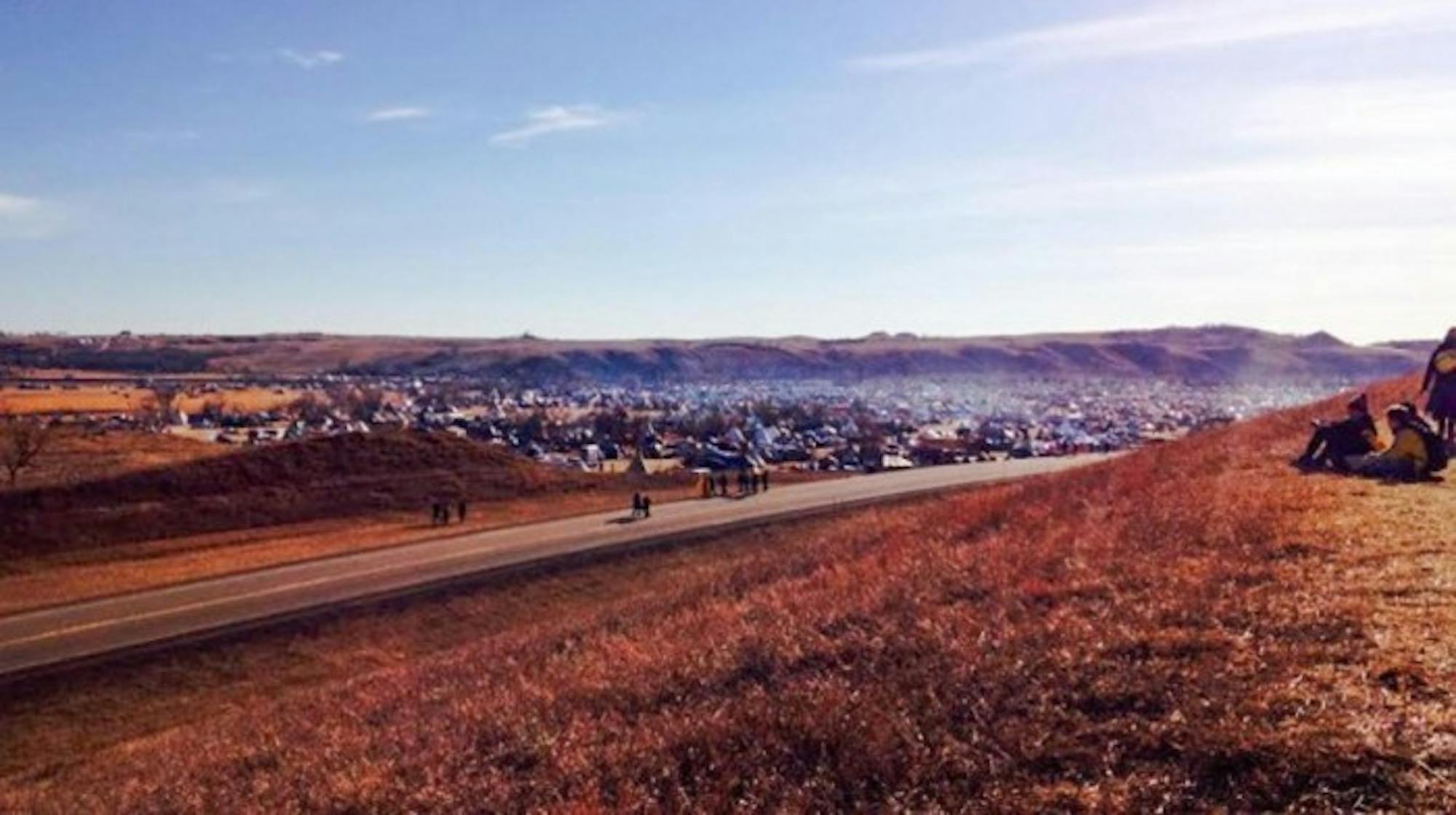Over Thanksgiving break, Saint Mary’s students Nohemi Toledo, Megan Uekert, Teresa Brickey and Adrienne Whisman, and Notre Dame students Jenn Cha, Carrera Brown, Armani Porter, Cameron Hart, Carolyn Yvellez and Dominic Acri, and Garrett Blad travelled to Standing Rock Reservation to winterize the Oceti Sakowin Camp (Editor's note: Uekert is a News writer for The Observer).
Saint Mary’s student Adrienne Whisman said the experience was very enlightening and necessary, and the water protectors’ protest to stop the Dakota Access Pipeline is more than just a protest.
“This isn't just a protest, but a coming together of various people from various tribes and walks of life who believe that native rights come before capitalism or money making,” Whisman said. “While I was there, I saw children playing, Buddhist monks talking with native people. I saw flags from so many countries and tribes that there's an entire road dedicated to them. I heard ceremonies and witnessed people sharing their supplies and helping each other, all without expecting anything from one another. It was a different way of living, and it was a place where all of us, despite our differences, could come together for a common cause, that of preserving the Earth and helping our native brothers and sisters.”
Whisman and her peers went to the Oceti Sakowin camp, the main camp on the reservation.
“The camp is a ceremonial prayer camp,” Whisman said. “It has no weapons, no illegal substances, and is there as a continuation of the 500 years of resistance to colonization and genocide. There were thousands of people there and it is the largest gathering of First Nation indigenous people in 100 years. While our group was there, a prayer circle occurred to combat the police and army presence on sacred sites and burial grounds. They gave their press conference in response to the eviction notice issued, one that would take effect Dec. 5.”
Whisman said she helped build a floor in order to insulate one of the tents.
“I personally helped the Haudenosaunee camp winterize their tent by building a floor,” Whisman said. “Winter there is cold, and many [people] have been there for months, so the need to insulate and prepare has taken precedence.”
Whisman said she wanted to help out any way she could, because what’s happening on the reservation is so important.
“I wanted to go because water is life, it is the Nakota, Lakota, Dakota indigenous people's land and culture that this pipeline is going over.,” Whisman said. “I wanted to be an ally and provide any help I could both through donations and a physical presence. Many people don't realize the extent of all that is going on. The news, if it reports on this at all, focuses on the water protectors and injuries done to them. We need to also focus on the fact that this is an ongoing struggle that has been occurring since Europeans came over here and stayed, taking land and lives to fuel their own greed and wants.”
Although the trip was orchestrated by the students, Whisman said they had faculty and staff supporters. She hopes that there will be school sanctioned trips in the future, but for now she said there are many things those looking to help can do.
“If you want to help, look online for what donations are needed, they have an amazon wish list as well as various websites that are updated as needs arise,” she said. “Call on President Obama and any government officials you can and demand they stand up and speak out against the human rights violations at Standing Rock perpetuated by the police presence. If you're white or non-native, remember that this isn't about you. It's about the continued exploitation and disregard for indigenous lives and the preservation of them and their culture.”
Whisman said one must be aware of the past in order to create a brighter future for natives, and everyone in the United States.
“The recognition of this movement worldwide and by non natives really needs to be taken within the context of the fact that this sort of exploitation of the natives and the land has been going on throughout and before the United States became a country,” Whisman said. “The orientation meeting called for us to create a new legacy wherein we don't forget the horrors of the past, nor the fact that for many centuries the U.S. government and people were complicit in systematic and widespread genocide and land-stealing. We do need to remember this, but we as allies can create a new future where we don't continue this legacy but work to rid our laws and government of the prejudices and special interests that cause these things to happen.”
Correction Nov. 29, 3 p.m.: A previous version of this story did not include senior Cameron Hart, junior Carolyn Yvellez or 2015 graduate Garrett Blad, who also traveled to the Standing Rock Reservation over Thanksgiving break.













